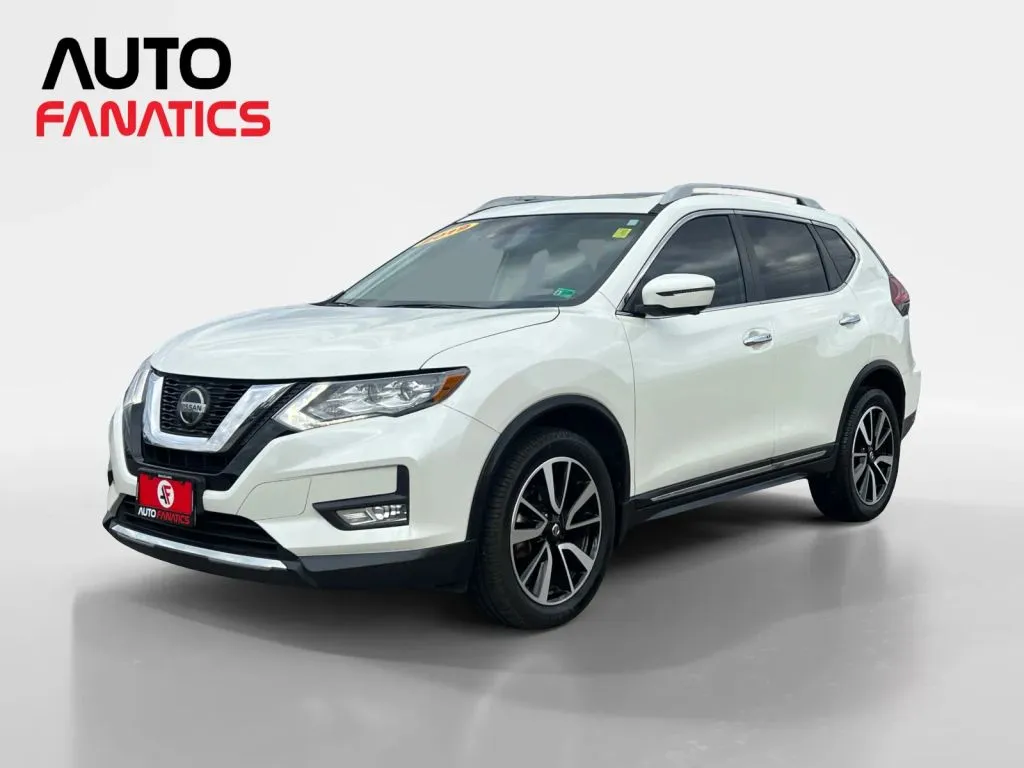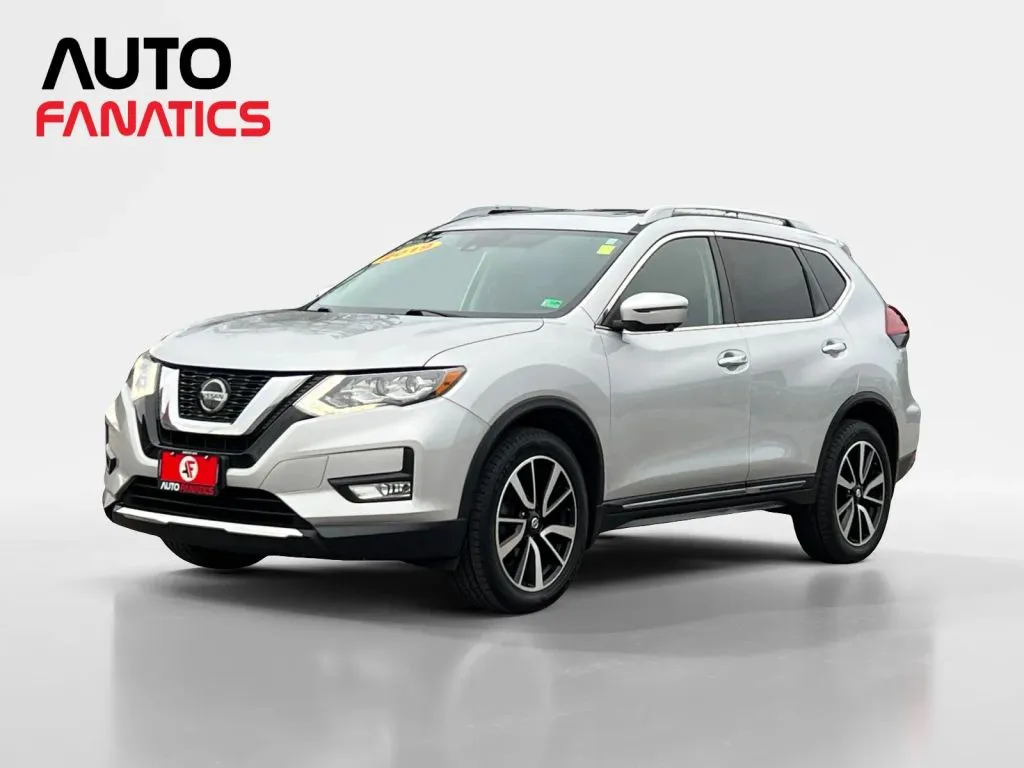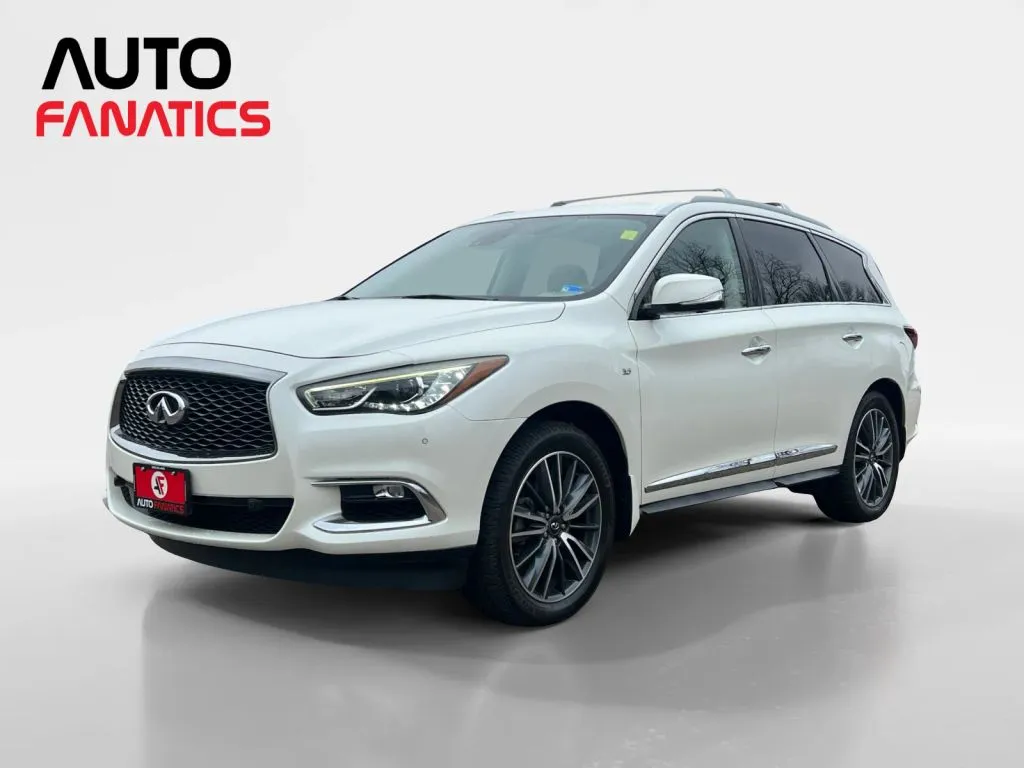How Much Will I Get Approved for a Car Loan?
Table of Contents
How Much Will I Get Approved for a Car Loan?
It’s easy to fall in love with a car on the lot, but the real question is whether it fits your budget. A huge part of that equation is figuring out your financing. Before you get too far in your search, it’s smart to ask, "How much will I get approved for a car loan?" This helps you shop realistically and avoid disappointment. This article is designed to demystify the approval process. We'll explain what lenders look for, how your financial habits play a role, and what steps you can take to secure the best possible loan for your situation.
Key Takeaways
- Lenders Review Your Full Financial Story: It’s not just about one number. Lenders look at your complete financial picture—including your credit score, income stability, and debt-to-income (DTI) ratio—to decide on your loan amount and interest rate.
- You Can Directly Influence Your Loan Offer: Taking proactive steps like saving for a larger down payment, paying down existing credit card balances, or choosing a shorter loan term can significantly improve your approval odds and help you secure a better rate.
- Use Financing Tools to Shop with Confidence: Getting pre-qualified gives you a clear, no-pressure budget to work with before you start shopping. A car loan calculator then helps you understand the true monthly cost, ensuring your final choice is a perfect fit for your finances.
How Lenders Decide Your Car Loan Amount
When you apply for a car loan, lenders look at your complete financial picture to decide if you're a good candidate and how much they're willing to lend. It’s not just one single number; it’s a combination of factors that tells them how likely you are to pay back the loan on time. Understanding these key pieces of the puzzle can help you feel more prepared and confident when you start the financing process. Let's walk through exactly what they review.
The Role of Your Credit Score
Your credit score is one of the first things a lender checks. Think of it as a snapshot of your history with borrowing money. A higher score generally shows you have a track record of responsible borrowing, which makes you a lower risk. Because of this, lenders often reward higher scores with lower interest rates. This can save you a significant amount of money over the life of your loan. If your score isn't where you'd like it to be, don't panic. There are always steps you can take to improve it over time.
Why Your Income and Job Stability Matter
Lenders want to see that you have a steady, reliable source of income to cover your monthly car payments. They’ll look at your job history and how much you earn to feel confident in your ability to repay the loan. A consistent employment record can work in your favor, showing that you’re financially stable. It’s not just about how much you make, but also the consistency of that income. This helps them determine a loan amount that fits comfortably within your budget without stretching you too thin each month. This is a key part of responsible auto financing.
What Is a Debt-to-Income Ratio?
Your debt-to-income (DTI) ratio might sound technical, but it’s a simple concept. It’s the percentage of your gross monthly income that goes toward paying your monthly debts, like rent, credit card payments, and other loans. Lenders use this to gauge how well you can manage another monthly payment. A lower DTI is always better, as it signals you have plenty of room in your budget for a car loan. If your DTI is a bit high, you can work on lowering it by either reducing your existing debt or finding ways to increase your income.
The Power of a Down Payment
Making a down payment is one of the most effective ways to improve your loan application. When you put money down upfront, you’re reducing the total amount you need to borrow. This not only lowers your monthly payments but also reduces the total interest you'll pay. It also shows the lender that you’re a serious buyer with skin in the game. A common guideline is to aim for at least 10% down for a used car. Don't forget, the value of your current vehicle trade-in can serve as a great down payment, too.
How Loan Terms Change Your Payment
The loan term is simply the length of time you have to repay the loan. You’ll often see options ranging from 36 to 72 months or even longer. A shorter term, like 48 or 60 months, means higher monthly payments, but you’ll pay off the car faster and pay less in total interest. A longer term will give you a more manageable monthly payment, but you'll end up paying more in interest over the life of the loan. It’s a good idea to play with the numbers using a car loan calculator to find a balance that works for your budget.
Check Your Credit Before You Apply
Before you start browsing for your next car, it’s a great idea to take a peek at your credit report. Think of it as your financial starting line. Knowing where you stand gives you a clearer picture of what to expect and helps you prepare for the financing process with confidence. Lenders use this information as a key part of their decision, so walking in with this knowledge puts you in a much stronger position. It’s a simple, proactive step that can make the entire car-buying journey smoother and less stressful. By understanding your credit profile ahead of time, you can identify any potential roadblocks and address them before they become an issue, ensuring you’re ready to secure the best possible terms for your loan.
Where to Get Your Free Credit Report
You have the right to a free copy of your credit report every year from each of the three major credit bureaus: Equifax, Experian, and TransUnion. The best place to get it is from the official, government-authorized website, AnnualCreditReport.com. Checking your own report is considered a "soft inquiry," which means it won't affect your credit score at all. It’s a completely risk-free way to gather essential information. Taking a few minutes to request your reports is one of the smartest first moves you can make before applying for a loan.
How to Read Your Credit Score
Once you have your report, you'll see a three-digit number—that's your credit score. Generally, a score of 670 or higher is considered "good," which can help you secure more favorable loan terms. But don't worry if your score isn't perfect. Lenders look at more than just that number; they also consider your income, employment history, and overall debt. Understanding what credit score is needed to buy a car helps you set realistic expectations. At Auto Fanatics, we work with people across the credit spectrum and believe in looking at your complete financial picture.
Fix Errors on Your Credit Report
Believe it or not, credit reports can have mistakes. You might find an account that isn't yours or a payment that was incorrectly marked as late. Finding and fixing these errors before you apply for a loan can make a significant difference. If you spot something that doesn't look right, you can dispute any inaccuracies directly with the credit bureau. It takes a little time, but ensuring your report is accurate is well worth the effort. A clean, correct report gives lenders the most honest view of your financial health and can lead to better loan offers.
What Loan Amount Can You Expect?
Your credit score is one of the biggest factors lenders look at when deciding how much they’re willing to loan you. It gives them a quick snapshot of your financial habits and helps them determine your interest rate. While it’s not the only piece of the puzzle, knowing where you stand can give you a much clearer picture of what to expect when you apply for financing. Let’s look at what different credit score ranges typically mean for car buyers.
For Poor to Fair Credit (300-669)
If your credit score falls into the poor-to-fair range, please don't feel discouraged. It’s absolutely still possible to get approved for a car loan. The main difference you’ll see is in the interest rate. Lenders may offer rates between 13% and 22% for a used car loan in this credit tier. A higher interest rate means you'll pay more over the life of the loan, which can affect the total amount you can comfortably borrow. The key is to focus on a monthly payment that fits your budget. We work with a network of lenders to help find the best possible terms, so you can still get approved and drive away in a reliable vehicle.
For Good to Excellent Credit (670-850)
Having a good or excellent credit score puts you in a strong position. Lenders see you as a lower-risk borrower, and they’ll reward you with more favorable terms. For used car loans, you can expect interest rates to be significantly lower, often in the 6% to 9% range. This lower rate can save you thousands of dollars over the course of your loan. It also means that for the same monthly payment as someone with a lower score, you could potentially qualify for a larger loan amount. You can use our car loan calculator to see how different interest rates impact your potential payment and buying power.
What These Credit Ranges Mean for You
Ultimately, a higher credit score makes borrowing money less expensive and gives you more flexibility. The average credit score for a used car loan is around 684, which falls squarely in the "good" category. Knowing your score before you start shopping helps you set realistic expectations and budget accordingly. It’s the first step toward a confident and stress-free car-buying experience. A great way to see where you stand without impacting your score is to get pre-qualified with Capital One right on our site. It’s quick, easy, and gives you a real-world idea of your financing options.
Look Beyond the Sticker Price
It’s easy to get focused on the sticker price when you’re shopping for a car. You find a great vehicle, see the price, and start imagining yourself behind the wheel. But that number is just one piece of the puzzle. The total cost of owning a car includes several other factors that can significantly impact your budget. Thinking about these costs upfront is the key to a confident and stress-free purchase.
The true cost of your next vehicle includes dealership fees, state taxes, your loan's interest rate, and ongoing expenses like insurance and maintenance. Planning for these from the start ensures you choose a car that you can comfortably afford, not just one you can get a loan for. It’s about making a smart financial decision that you’ll be happy with for years to come. To get a clearer picture of what your payments might look like, you can experiment with our online car loan calculator to see how different prices and loan terms fit your budget.
Account for Fees and Taxes
The price you see on the window sticker isn't your final "out-the-door" price. You'll also need to account for a few standard additions. These typically include state and local sales tax, title and registration fees required by the DMV, and a documentation fee, which covers the cost of preparing and filing all the paperwork.
While these fees can add up, they are a normal part of the car-buying process. A transparent dealership will always be upfront about these costs so there are no surprises when it's time to sign the papers. Understanding these extra costs helps you budget accurately and compare offers from different sellers more effectively.
Factor in Insurance and Interest Rates
Two of the biggest ongoing costs tied to your car are the loan interest and your insurance premium. The interest rate you get is heavily influenced by your credit history. Lenders view a higher credit score as less risky, so they offer better rates. For perspective, the average credit score for a used car loan is around 684. A lower interest rate can save you hundreds or even thousands of dollars over the life of your loan.
Car insurance is another essential expense to plan for. Your rate will depend on your driving record, your location, and the specific car you buy. It’s a good idea to get a few insurance quotes for the vehicles you’re considering to see how they’ll impact your monthly budget. You might also consider our vehicle protection plans to guard against unexpected repair costs down the road.
Create a Realistic Car Budget
To make sure your new car fits comfortably into your life, it helps to create a realistic budget. A good rule of thumb is to keep your total car expenses—including your monthly payment, insurance, gas, and estimated maintenance—at or below 20% of your monthly take-home pay. For the car payment itself, financial experts often suggest aiming for no more than 10% of your take-home pay.
This simple budgeting guideline helps prevent your car from becoming a financial burden. It ensures you have plenty of room in your budget for other savings goals and living expenses. Once you have a number in mind, you can use our car loan calculator to work backward and determine a vehicle price range that aligns with your target monthly payment.
How to Improve Your Approval Odds
Feeling a little nervous about getting approved for the loan you need? That’s completely normal. The good news is you have more power than you think. Lenders look at a snapshot of your finances, and there are several practical steps you can take to make that picture as strong as possible. By focusing on a few key areas before you apply, you can significantly increase your chances of not only getting approved but also securing a better interest rate. Let’s walk through some of the most effective strategies.
Ways to Build Your Credit Score
Your credit score is one of the first things lenders check. A higher score shows them you have a history of managing debt responsibly. While there’s no magic number, a score of 670 or higher is generally considered good and can help you get more favorable loan terms. If your score isn’t quite there yet, don’t worry. You can build your credit by consistently paying all your bills on time, keeping your credit card balances low, and avoiding opening several new credit lines at once. Every on-time payment helps create a positive track record that lenders love to see.
Tips to Lower Your Debt
Lenders also look at your debt-to-income (DTI) ratio, which is the percentage of your monthly gross income that goes toward paying your debts. A lower DTI signals that you can comfortably handle a new car payment. You can improve your DTI by either paying down your existing debt or increasing your income. This could mean making extra payments on a credit card or student loan. Even small actions, like creating a budget to find extra cash for debt payments, can gradually improve your financial profile. It’s all about showing lenders you have enough room in your budget for a car loan.
Save for a Larger Down Payment
A down payment is your friend in the car-buying process. The more money you can put down upfront, the less you’ll need to borrow. This not only improves your approval odds but also saves you money in the long run by reducing your monthly payment and the total interest you’ll pay. A larger down payment lowers the lender's risk, making them more willing to work with you. You can use a car loan calculator to see exactly how different down payment amounts affect your potential monthly payments. It’s a great way to set a realistic savings goal.
When to Consider a Co-Signer
If you have a limited credit history or a score that’s still a work in progress, bringing on a co-signer can be a smart move. A co-signer—typically a family member or close friend with good credit—agrees to take responsibility for the loan if you’re unable to make payments. Their strong credit history can help you get approved for a loan you might not qualify for on your own or even secure a lower interest rate. Just remember that this is a serious financial commitment for your co-signer, so it’s important to have an open conversation about the responsibilities involved before they sign on the dotted line.
What Is a Loan-to-Value (LTV) Ratio?
When you apply for a car loan, lenders look at more than just your credit score and income. They also use a key metric called the loan-to-value (LTV) ratio. In simple terms, LTV compares the amount of money you’re borrowing to the actual cash value of the car you want to buy. It’s a straightforward calculation: the loan amount divided by the car’s value.
This ratio helps lenders quickly assess the risk involved with your loan. A high LTV means you're financing most or all of the vehicle's price, which can seem riskier. A lower LTV, usually achieved with a larger down payment, shows the lender you have a significant personal stake in the car from day one. Understanding your LTV is a great step toward a smooth and successful loan approval process.
Why LTV Matters to Lenders
Lenders use the LTV ratio as a major factor in their decision-making. A lower LTV is always more attractive because it reduces the lender's risk. If a borrower stops making payments on a loan with a low LTV, the lender has a better chance of recovering their money by repossessing and selling the vehicle. It signals that you have "skin in the game."
On the other hand, a high LTV can be a red flag. If your LTV is over 100%—which can happen if you roll taxes, fees, or negative equity from a trade-in into the loan—lenders may charge a higher interest rate to compensate for the added risk. In some cases, a very high LTV could lead to the loan being denied.
How Your Vehicle Choice Affects LTV
The car you choose has a direct impact on your LTV ratio. Since the ratio is based on the vehicle's actual cash value, picking a car that is priced fairly is essential. At Auto Fanatics, we ensure all our trucks, SUVs, and cars are priced competitively to help you start with a healthy LTV.
A vehicle’s depreciation rate also plays a role. Some cars hold their value better than others, which can keep your LTV in a good range over the life of the loan. Choosing one of our reliable, meticulously inspected used vehicles is a great way to get a car that retains its value well. This smart choice can make your entire financing journey easier and more affordable.
Pre-Qualification vs. Pre-Approval: What's the Difference?
When you start exploring car financing, you’ll hear the terms “pre-qualification” and “pre-approval” used a lot. They might sound interchangeable, but they represent two distinct and important steps in securing a car loan. Understanding the difference can make your car-buying experience smoother and less stressful. Think of pre-qualification as your initial research phase and pre-approval as getting your final game plan in place before you make a purchase. Both steps are designed to give you more clarity and confidence, ensuring you know exactly where you stand financially before you fall in love with a car on the lot. Taking the time to go through these processes helps you shop smarter, not harder.
The Benefit of Getting Pre-Qualified
Pre-qualification is the perfect first step when you're just beginning to think about buying a car. It’s a quick and easy way to get an estimate of how much you might be able to borrow. You’ll provide some basic financial information, like your income and major debts, and a lender will give you a ballpark figure. The best part? This process typically uses a soft credit inquiry, which means it won’t impact your credit score. It’s a no-pressure way to set a realistic budget and start browsing for vehicles in your price range. You can get pre-qualified with Capital One on our website to see where you stand in minutes.
The Advantage of Pre-Approval
Pre-approval is a more concrete step toward financing your next vehicle. For this, you’ll complete a full credit application, and the lender will perform a hard credit inquiry to review your financial history in detail. While a hard pull can temporarily dip your credit score by a few points, the payoff is significant. You’ll receive a firm offer for a specific loan amount and interest rate. Having a pre-approved auto loan is like shopping with cash in hand; it shows you’re a serious buyer and gives you a solid understanding of what your monthly payments will be. When you’re ready for this step, you can fill out our full financing application to get started.
How Each Step Helps Your Loan Search
Both pre-qualification and pre-approval are valuable tools that help you at different stages of your search. Pre-qualification gives you the financial outline you need to browse our selection of cars, trucks, and SUVs with a realistic budget in mind. It prevents you from wasting time on vehicles that are out of reach. Once you’ve narrowed down your options, getting pre-approved gives you the power to move forward confidently. This step provides a more detailed understanding of your financing options and can strengthen your position when you're ready to buy. Knowing your exact numbers helps you stick to your budget and make a smart financial decision.
How We Make Financing Easy
Let’s be honest—car financing can feel like the most complicated part of the buying process. That’s why we’ve focused on making it as simple and transparent as possible. We believe that feeling confident about your loan is just as important as feeling confident about your car. Our goal is to give you clear, straightforward tools and support so you can find a financing solution that truly works for you, without the stress or pressure. We’re here to guide you through every step, from figuring out your budget to protecting your new vehicle for the road ahead.
Explore Our Flexible Loan Options
Finding the right car is exciting, and your loan should fit just as perfectly. We offer flexible loan options to match your unique financial situation. The key is to find a plan that fits comfortably within your budget, and a great way to start is by exploring what your monthly payments might look like. Using an online tool to estimate payments can help you see how different loan amounts and terms affect your bottom line. When you’re ready, you can fill out our straightforward online application to get approved and see exactly what options are available to you.
Get Pre-Qualified Instantly with Capital One
One of the smartest first steps you can take is getting pre-qualified. This process gives you a clear idea of how much you can afford before you even start browsing our inventory. The best part? It’s a soft inquiry, which means it doesn't hurt your credit score. Think of it as a no-pressure way to establish your budget. We’ve partnered with Capital One to make this step incredibly easy. You can get pre-qualified instantly on our website, giving you the confidence to shop for the right car, truck, or SUV in your price range.
Plan Your Payments with Our Loan Calculator
A car payment is more than just a number; it’s a part of your monthly budget. To make sure you’re comfortable with your financial commitment, it’s essential to look beyond the sticker price and understand the total cost of the loan. Our online Car Loan Calculator is the perfect tool for this. It helps you estimate your monthly payment based on the vehicle price, your down payment, the loan term, and the interest rate. Using a calculator is a vital step for budgeting effectively and ensuring your new car fits seamlessly into your life.
Protect Your New Car with Our Plans
Once you’ve found and financed your perfect car, you’ll want to protect that investment. Just as managing your finances helps you reach your goals, having a protection plan provides peace of mind for the miles ahead. Unexpected repairs can be stressful and costly, but they don’t have to be. We offer a variety of automotive protection plans designed to cover major components and save you from expensive, out-of-pocket repairs. It’s a simple way to safeguard your vehicle and your budget, ensuring you can enjoy your new ride without worry.
Related Articles
- Used car loan calculator | Auto Fanatics Fredericksburg, VA
- Auto financing for used cars, trucks, & SUVs | Auto Fanatics
- Get your credit score | Auto Fanatics in Fredericksburg, VA
- Prequalify with Capital One | Auto Fanatics VA
- Used 2018 Hyundai Tucson Value Sport Utility 4D for sale in Fredericksburg, VA at Auto Fanatics | VIN: KM8J3CA21JU817190
Frequently Asked Questions
I have bad credit. Can I still get a car loan? Yes, it is absolutely possible to get a car loan even if your credit isn't perfect. Lenders look at your entire financial situation, including your income stability and your debt-to-income ratio. While a lower credit score often results in a higher interest rate, we work with a network of lenders who specialize in helping people from all credit backgrounds. The key is to focus on a vehicle and a monthly payment that fit comfortably within your budget.
How much of a down payment should I actually save up? While there's no magic number, a great goal for a used car is a down payment of at least 10% of the vehicle's price. Putting more money down is one of the best things you can do for your loan application. It reduces the amount you need to borrow, which can lower your monthly payment and the total interest you pay over time. It also shows lenders you're a serious and committed buyer, which can improve your approval odds.
Will exploring my financing options hurt my credit score? This is a common concern, and the answer depends on the type of inquiry. Getting pre-qualified, which gives you an estimate of what you can borrow, typically only requires a soft credit pull and does not affect your score. It's a great, risk-free first step. A pre-approval, which is a firm loan offer, requires a hard inquiry that can temporarily dip your score by a few points. However, this step gives you real buying power and is a normal part of the process.
Is it better to take a longer loan for a lower monthly payment? A longer loan term can be tempting because it makes the monthly payment smaller and more manageable. However, it's important to remember the trade-off. With a longer term, you'll end up paying more in total interest over the life of the loan. A shorter term means a higher monthly payment, but you'll pay off the car faster and save a significant amount on interest. It's about finding the right balance for your personal budget.
Besides my credit score, what's one thing I can do to improve my chances of getting approved? Focus on your debt-to-income (DTI) ratio. This is the percentage of your monthly income that goes toward existing debt payments. Lenders want to see that you have enough room in your budget to comfortably handle a new car payment. Paying down credit card balances or other personal loans before you apply can lower your DTI and make your application much stronger, showing lenders you're a financially responsible borrower.
Author(s)

Ray Mehta
CEO AND FOUNDERRay Mehta is the CEO and Founder of Auto Fanatics, a leading independent dealership in Fredericksburg, Virginia. With over 15 years of experience spanning franchise and independent dealerships, Ray has guided management teams that have sold 50,000+ vehicles, giving him deep expertise in automotive retail, financing, and customer experience.
Widely regarded as a subject matter expert in dealership operations and digital retailing, Ray frequently shares insights through blogs and thought leadership articles, where he explores industry trends, credit challenges, and the future of car buying.
At Auto Fanatics, his vision is to create a transparent, customer-first car buying experience, blending technology with trust to redefine how people purchase vehicles.

JOHN TAHHAN
GENERAL MANAGERJohn Tahhan is the General Manager of Auto Fanatics, responsible for overseeing daily operations and ensuring every customer enjoys a smooth, transparent car-buying experience. With more than a decade of automotive retail experience, John has honed his skills in sales management, financing programs, and inventory strategy, helping Auto Fanatics grow while maintaining its customer-first values.
Known for his hands-on leadership style, John works closely with his team to create processes that drive efficiency and long-term satisfaction. His approachable personality and focus on integrity have made him a trusted leader among staff and customers alike.
Outside the dealership, John enjoys riding bikes, a passion that reflects his energy, focus, and love for the open road.










